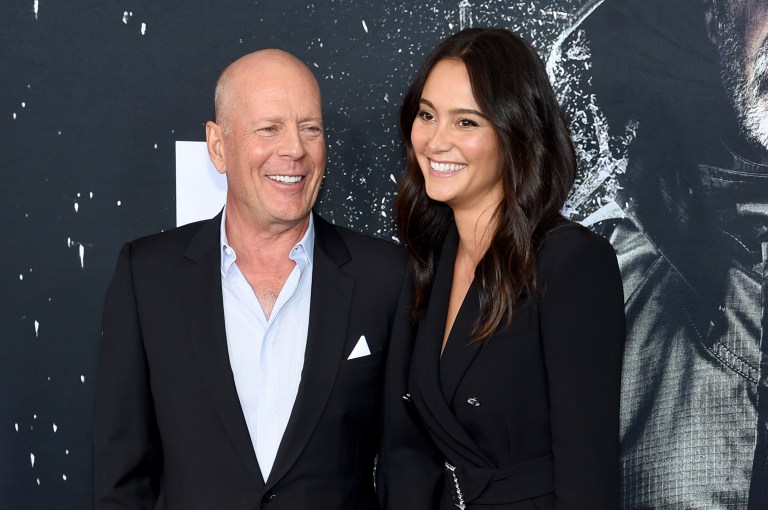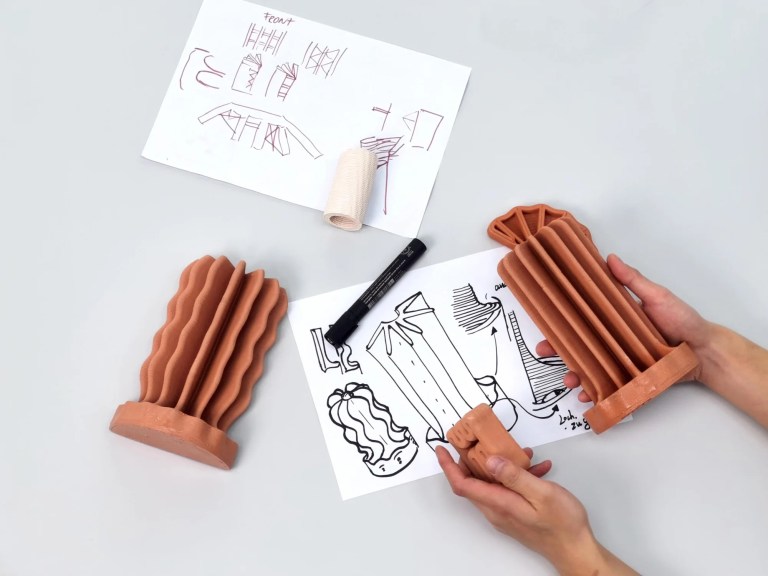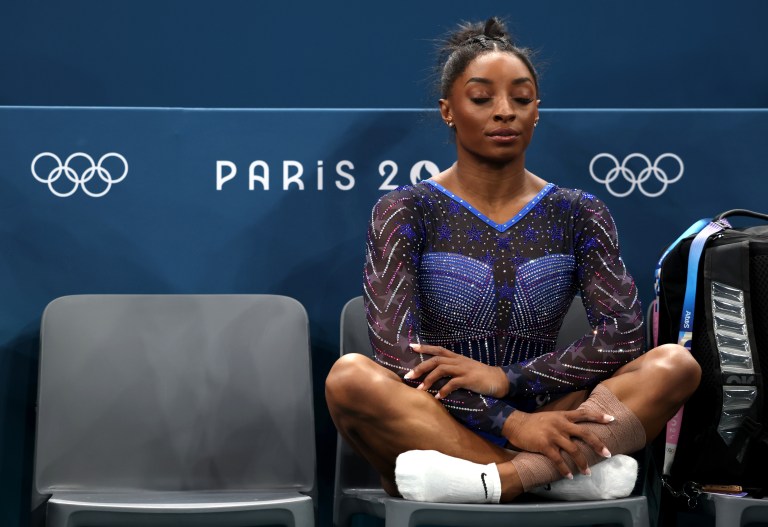Accessibility products are essential for improving disabled individuals’ daily lives. Unfortunately, they’re often not very easy on the eyes, with aesthetics frequently sacrificed in favor of function. That can result in homes looking less like cherished living spaces and more like clinical settings — something Kaly Ryan and Patrick Glinski are on a mission to change.
The duo are the brains behind Capella Design, launched in 2022. With its elegant pieces, the company is reimagining home mobility and helping break the stigma that’s sometimes attached to these types of items. Its inaugural offering was a sleek shower seat, and its newest is the ADA-compliant Selora Grab Bar Frame, which doubles as a display for artwork.
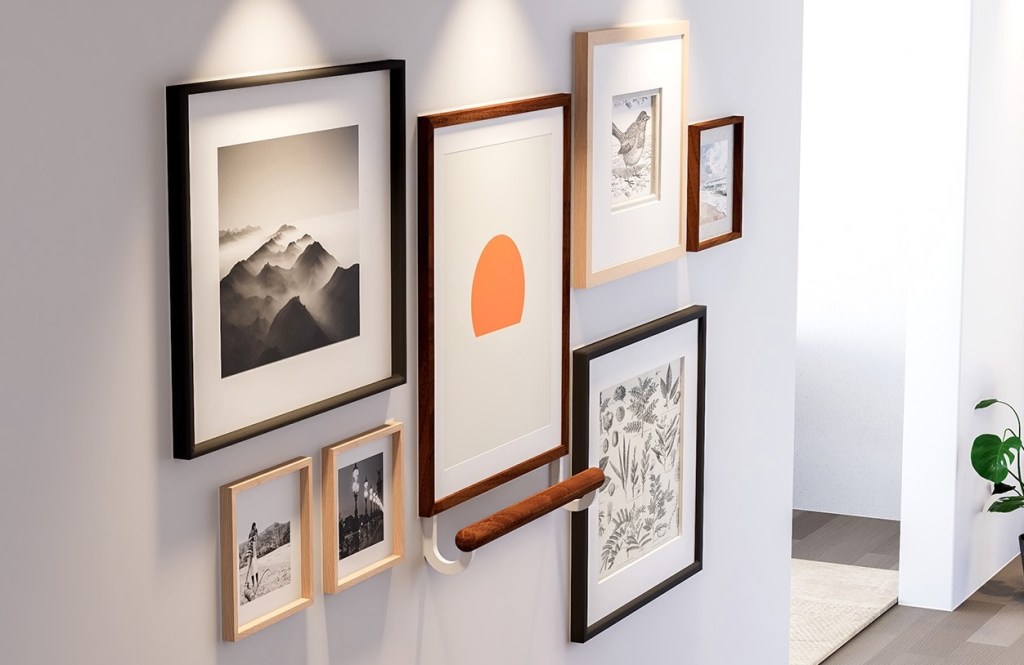
“No one wants to see their home turned into a hospital,” Glinski, who has a master’s degree in inclusive design, told Nice News. “If we can honor the visual harmony of a space for as long as possible, my hope is that we can help people maintain a sense of self.”
Both founders bring their personal experience with accessibility to the table. In a now-viral Instagram post, Glinski shared how the grab bar was partially inspired by what happened after his late father was diagnosed with Parkinson’s disease. At the time, Glinski kept encouraging his mother to install mobility aids in the house to accommodate his dad’s condition. But for his mom, an amateur interior designer who spent decades curating the decor in their family home, the idea was a hard pill to swallow.
“Talking with my mom about what that would do to the looks of the space, I realized that in my excitement to help my dad, I had completely ignored the needs of my mom,” Glinski shared. “This experience helped me understand that illness affects everyone who shares a home, not just the person diagnosed.”
Ryan has a similar “why” behind her work. When she was growing up, her grandfather required mobility aids to get around, but her grandmother had the same perspective as Glinski’s mom when it came to installing them in the house. So Ryan’s mother and aunt set out to establish a small community of accessible row houses, a passion project that enabled her grandpa to remain independent and close to his home.
“Kaly remembers thoughtful design choices — like hiding accessibility features in the bedroom and building raised garden beds so her grandfather could keep gardening — as a testament to how design could preserve dignity and enable joy,” Glinski said of his co-founder, adding that Capella Design is “her way of continuing her family’s legacy of caring through creativity and thoughtful design.”
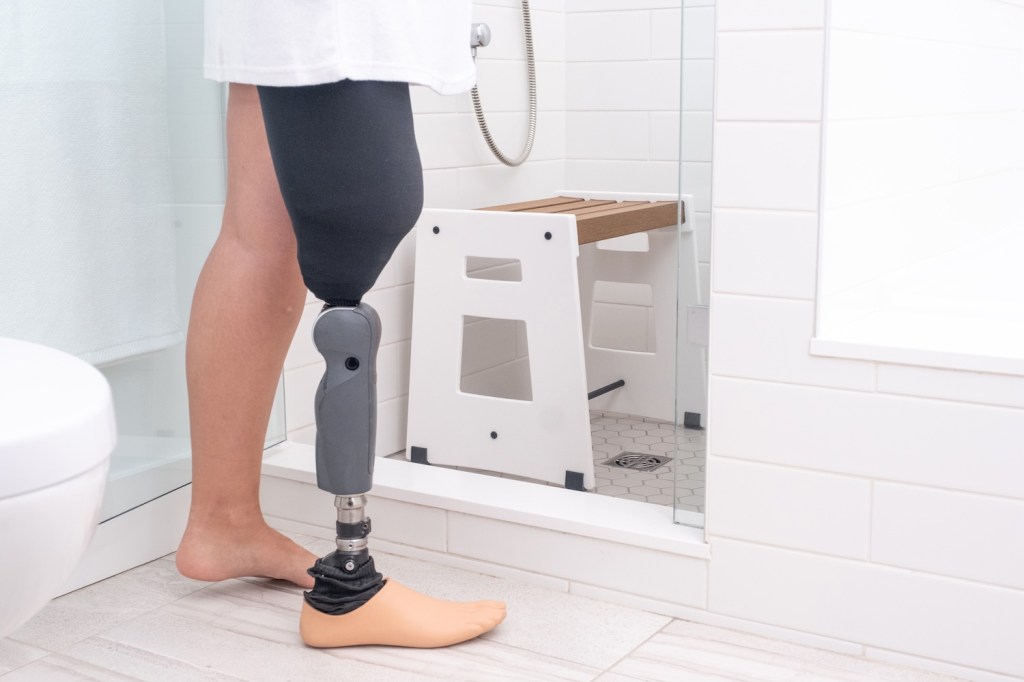
In addition to the grab bar and shower seat, the brand offers a ceramic “stability mug” that’s ideal for people with arthritis or limited dexterity in their hands, and a wood side table with an adjustable tray that swings over a person’s lap. The most striking element all the items have in common is that each seamlessly fits into any modern-style home, whether a disabled individual lives there or not. That’s key to Ryan and Glinski’s ethos.
“While our side table might help a caregiver reduce transfers, it’s also perfect for someone working from home. While our grab bar might help someone stay steady on their feet, it’s also amazing in a mud room to help you put your shoes on,” Glinski explained. “And in my own home, it’s my 13-year-old daughter who uses our shower stool more than anyone else. That’s what universal design is all about — creating solutions that are practical, beautiful, and versatile enough to work for everyone.”

Capella Design has made waves in the field for its innovative approach to ADA-compliant furniture, but its biggest impact, of course, is on the people who purchase these products.
“What’s been deeply motivating are the thousands of messages I’ve received from people living with or caring for family members experiencing mobility challenges,” said Glinski. “Their gratitude and encouragement reinforce what we’ve always believed: The world wants accessible products to be beautiful, and there’s an incredible opportunity to meet that need.”
RELATED: Meet the Mom Building Magical, Inclusive Playgrounds for Kids With Disabilities


